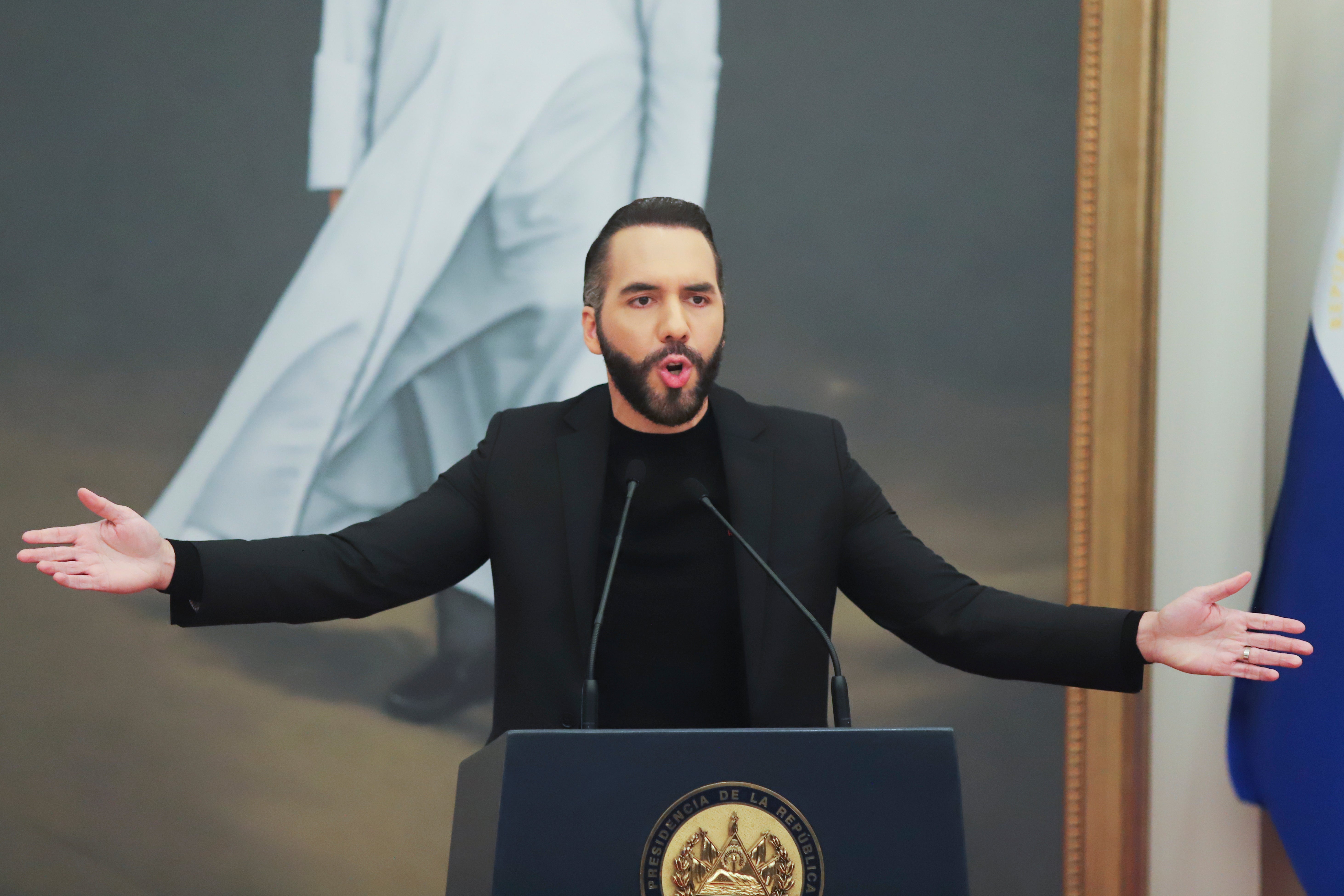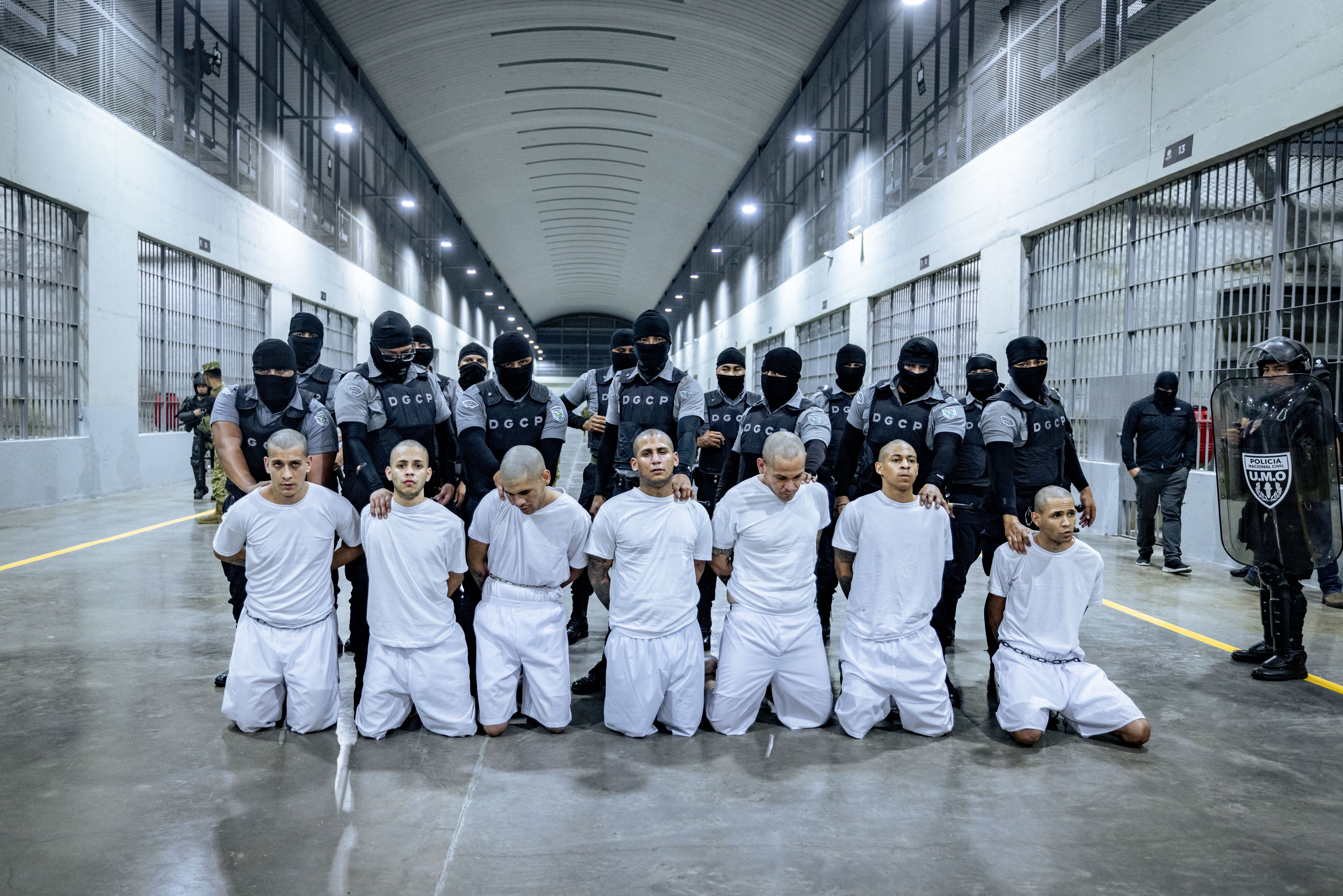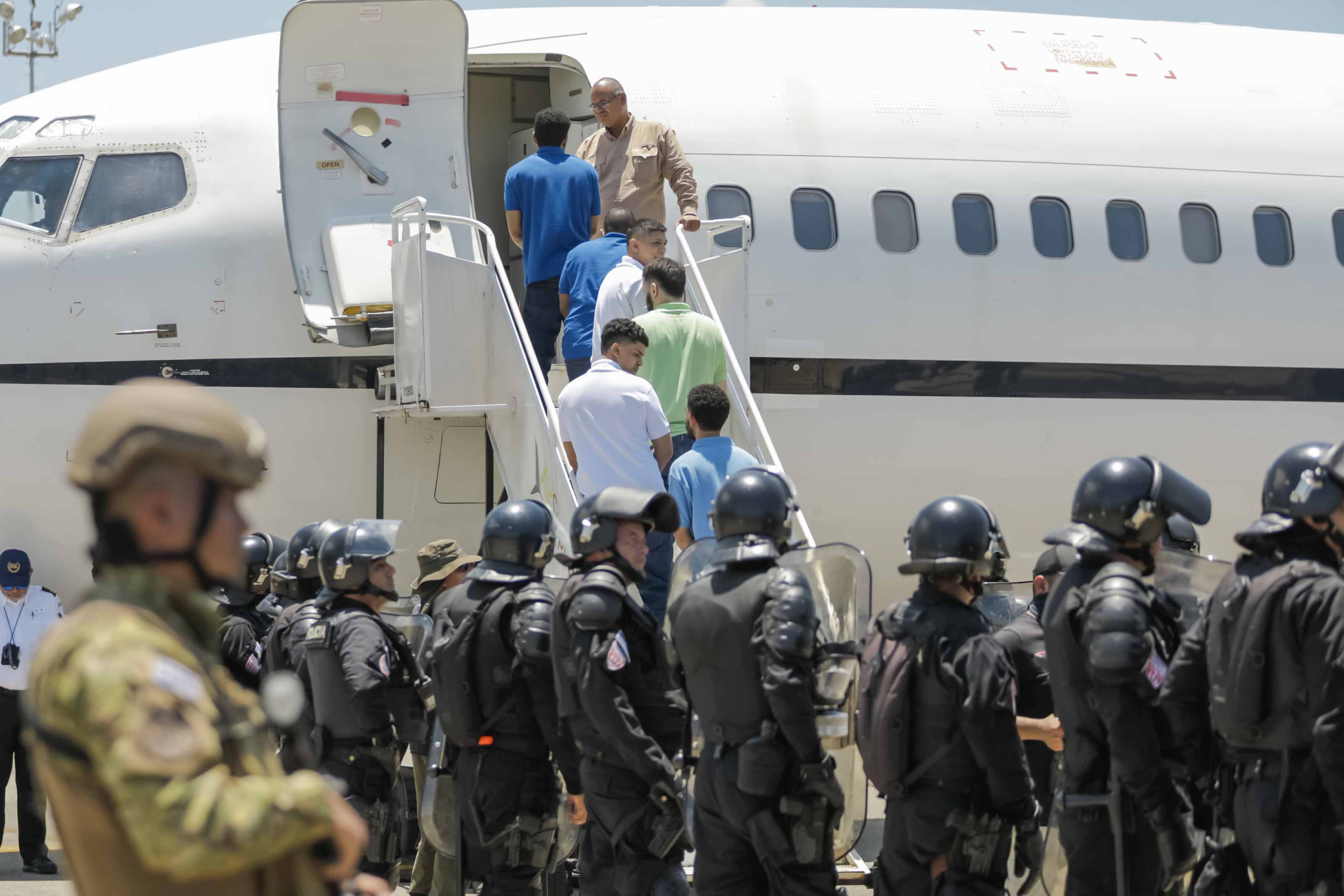A secret memo between the United States and El Salvador reveals the Trump administration’s $5 million deal for Nayib Bukele’s government to jail dozens of Venezuelan immigrants deported from the country earlier this year.
According to a term sheet made public in court filings this week, the Trump administration agreed to pay the Salvadoran government $4.67 million to detain deportees at the notorious Terrorism Confinement Center, or CECOT, a brutal prison that human rights groups have condemned as a “tropical gulag.”
Under terms of the deal, El Salvador was prohibited from using the money to support drug traffickers and “mass-migration caravans” to the U.S.-Mexico border — as well as abortion care and support for diversity, equity and inclusion initiatives.
But the deal does not explicitly prohibit immigrants from being tortured, experiencing abuse or being held indefinitely inside one of the western hemisphere’s most notorious jails, where more than 250 Venezuelan immigrants deported by the Trump administration spent more than four months before they were sent back to their home country.
The agreement was dated March 22, one week after Donald Trump invoked the Alien Enemies Act to summarily deport alleged Tren de Aragua gang members, igniting several overlapping legal battles against the president’s use of the wartime law and conditions inside the prison.
Bukele, who has called himself “the world’s coolest dictator,” reached a tentative agreement with Secretary of State Marco Rubio to jail deportees in February.
On March 13, the U.S. Embassy in San Salvador sent a note to El Salvador’s Ministry of Foreign Affairs stating that it “has the honor to request that El Salvador accept” up to 500 alleged Tren de Aragua gang members
The note “serves as 24-hour notice” of their arrival, according to court filings in a lawsuit from human rights groups.
The note stated that the “United States understands that El Salvador will take these actions in accordance with its authorities under Salvadoran domestic law, and in a manner that is consistent with El Salvador’s international legal obligations regarding human rights and treatment of prisoners, including the Convention Against Torture,” documents show.

The note also states that El Salvador “intends to accommodate” deportees “for a duration of one year unless or until a determination concerning their long-term disposition is made.”
“We assure you,” El Salvador wrote to the United States, “that the reception of these individuals will be conducted in accordance with Salvadoran law and international obligations, including adherence to the Convention Against Torture.”
But a subsequent agreement to be signed by representatives from both countries does not include any such assurances.
Court filings in another case also reveal that El Salvador told the United Nations that the country is not responsible for detainees in their custody.
“The jurisdiction and legal responsibility for these people lie exclusively with the competent foreign authorities,” according to Salvadoran authorities.
The Independent has requested comment from the State Department.

In his proclamation invoking the Alien Enemies Act in March, Trump stated that “all Venezuelan citizens 14 years of age or older who are members of [Tren de Aragua], are within the United States, and are not actually naturalized or lawful permanent residents of the United States are liable to be apprehended, restrained, secured, and removed as Alien Enemies.”
Several planes were loaded up with immigrants for their removal to El Salvador, and administration officials resisted court orders on March 15 for the planes to turn around — provoking an extraordinary legal battle in which Trump himself demanded the judge’s impeachment.
Government officials later admitted that “many” of those men did not have criminal records, and many were in the country with legal permission and scheduled to appear in court on their asylum claims, according to their attorneys.
“Oopsie… Too late,” Bukele wrote on social media on March 16.
“The United States will pay a very low fee for them, but a high one for us,” he wrote.
Records show that the Bureau of International Narcotics and Law Enforcement Affairs provided a $4.76 million “grant agreement for El Salvador’s law enforcement and anticrime needs, which may include costs associated with the detention of [Tren de Aragua] members.”
“The grant letter did not, however, include conditions relating to the human rights of those rendered under the Agreement, or specify that the funds could not be used, for example, to torture them,” lawyers for human rights groups wrote.

On July 18, following trilateral negotiations with the U.S. and Salvadoran and Venezuelan governments, Venezuelans jailed inside the facility were returned to their home country.
Lawsuits filed by immigrants detained at the jail have alleged widespread, prolonged abuse, including routine beatings from guards using their fists and batons as well as “severe sleep deprivation, inadequate nutrition, and psychological torture.”
Kilmar Abrego Garcia, who was mistakenly removed from the United States and forced to spend more than three weeks inside CECOT, was allegedly told by prison guards that “whoever enters here doesn’t leave.”
He was “forced to strip, issued prison clothing, and subjected to physical abuse including being kicked in the legs with boots and struck on his head and arms to make him change clothes faster,” according to his lawsuit.
He shared a cell with 20 other Salvadorans, who were “forced to kneel” from 9 p.m. to 6 a.m., “with guards striking anyone who fell from exhaustion,” according to his complaint.
Detainees “were confined to metal bunks with no mattresses in an overcrowded cell with no windows, bright lights that remained on 24 hours a day, and minimal access to sanitation,” he claims.
Prison officials also repeatedly threatened to move him to cells where gang members would “tear” him apart, according to his lawsuit.
Abrego Garcia “repeatedly observed prisoners in nearby cells who he understood to be gang members violently harm each other with no intervention from guards or personnel,” the complaint states. “Screams from nearby cells would similarly ring out throughout the night without any response from prison guards on personnel.”







